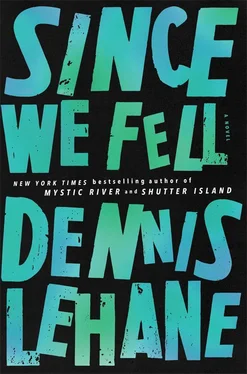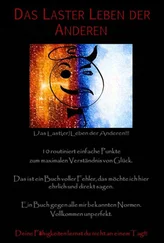Dennis Lehane - Since We Fell
Здесь есть возможность читать онлайн «Dennis Lehane - Since We Fell» весь текст электронной книги совершенно бесплатно (целиком полную версию без сокращений). В некоторых случаях можно слушать аудио, скачать через торрент в формате fb2 и присутствует краткое содержание. Город: New York, Год выпуска: 2017, ISBN: 2017, Издательство: Ecco, HarperCollins, Жанр: Триллер, roman, на английском языке. Описание произведения, (предисловие) а так же отзывы посетителей доступны на портале библиотеки ЛибКат.
- Название:Since We Fell
- Автор:
- Издательство:Ecco, HarperCollins
- Жанр:
- Год:2017
- Город:New York
- ISBN:978-0-06-212938-3
- Рейтинг книги:5 / 5. Голосов: 1
-
Избранное:Добавить в избранное
- Отзывы:
-
Ваша оценка:
- 100
- 1
- 2
- 3
- 4
- 5
Since We Fell: краткое содержание, описание и аннотация
Предлагаем к чтению аннотацию, описание, краткое содержание или предисловие (зависит от того, что написал сам автор книги «Since We Fell»). Если вы не нашли необходимую информацию о книге — напишите в комментариях, мы постараемся отыскать её.
is a novel of profound psychological insight and tension. It is Dennis Lehane at his very best.
Since We Fell — читать онлайн бесплатно полную книгу (весь текст) целиком
Ниже представлен текст книги, разбитый по страницам. Система сохранения места последней прочитанной страницы, позволяет с удобством читать онлайн бесплатно книгу «Since We Fell», без необходимости каждый раз заново искать на чём Вы остановились. Поставьте закладку, и сможете в любой момент перейти на страницу, на которой закончили чтение.
Интервал:
Закладка:
A week later Jeremy was moved to a neuro-treatment facility and gradually recovered some motor ability and the most rudimentary kernels of speech — yes, no, bathroom . He looked at his wife as if she were his mother, at his son and daughter as if they were his grandparents, at Rachel as if he were trying to place her. They tried reading to him, scrolled through his favorite paintings on an iPad, played his beloved Schubert. And none of it connected. He wanted food, he wanted comfort, he wanted relief from the pains in his head and body. He engaged the world with the terrified narcissism of an infant.
The family made it clear to Rachel that she could visit as much as she wanted — they were far too polite to say otherwise — but they failed to include her in most conversations and were always visibly relieved when she had to go.
At home, Sebastian grew resentful. She’d barely known the man, he’d argue. She was sentimentalizing an attachment that didn’t really exist.
“You need to let it go,” he said.
“No,” she replied, “you do.”
He held up an apologetic hand and closed his eyes for a moment to let her know he had no interest in a big fight. He opened his eyes and his voice was softer and conciliatory. “You know they’re considering you for Big Six?”
Big Six was what they called the national network in New York.
“I didn’t know that.” She tried to keep the excitement from her voice.
“You’re being groomed. Now isn’t the time to ease up on the throttle.”
“I’m not.”
“Because they’ll test you on something big. Something national-scale.”
“Such as?”
“A hurricane, a mass murder, I dunno, a celebrity death.”
“How will we soldier on,” she wondered aloud, “after Whoopi has passed?”
“It’ll be hard,” he agreed, “but she would have wanted us to show courage.”
She chuckled and he nestled into her on the couch.
Sebastian kissed the side of her neck. “This is us, babe, me and you. Joined at the hip. Where I go, you go. Where you go, I go.”
“I know. I do.”
“I think it’d be cool to live in Manhattan.”
“Which neighborhood?” she asked.
“Upper West Side,” he said.
“Harlem,” she said at the same time.
They both laughed it off because it felt like what one did when crucial differences in a marriage revealed themselves in strictly theoretical terms.
Jeremy James improved significantly through the fall. He remembered who Rachel was, though not what he’d said to the orderly, and he seemed to tolerate her presence more than rely on it. He had retained most of his knowledge of the luminist movement and of Colum Jasper Whitstone, but it was disjointed, his general sense of chronology off, so that Whitstone’s vanishing in 1863 was placed on a timeline just prior to Jeremy’s first trip to Normandy in 1977, when he was a graduate fellow. He thought Rachel was younger than Charlotte and couldn’t understand some days why Theo could take so much time off from high school to visit him.
“He doesn’t apply himself in the first place,” he told Rachel. “I don’t want him using my sickness to apply himself even less.”
He moved back into the house on Gorham Lane in November and was attended to by a hospice nurse. He grew physically stronger. His speech grew clear. But his mind remained elusive to him. “I can’t quite grasp it,” he said once. Both Maureen and Rachel were in the room and he gave them his hesitant smile. “It’s like I’m in a beautiful library but none of the books have titles.”
In late December of 2009, Rachel twice caught him checking his watch in the first ten minutes of her visit. She couldn’t blame him. Without their shared detective stories to discuss — he to find evidence of Colum Jasper Whitstone crossing paths with Claude Monet, she to find her father, and the both of them to understand Elizabeth Childs — they had little to talk about. No shared ambition, no shared history.
She promised to stay in touch.
Leaving his house, she walked down the flagstone path to her car, and she felt the loss of him anew. Felt too the old suspicion that life, as she had thus far experienced it, was a series of detachments. Characters crossed the stage, and some hung around longer than others, but all ultimately exited.
She looked back at his house as she reached her car. You were my friend, she thought. You were my friend.
Two weeks later, on January 12, a magnitude 7.0 earthquake hit Haiti at five o’clock in the afternoon.
As Sebastian had predicted, Rachel was assigned to cover it for Big Six. She spent her first few days in Port-au-Prince. She and her crew covered the airdrops of food and supplies, which most days ended in riots. They covered the corpses stacked up in the parking lot of General Hospital. They covered the makeshift crematoriums that sprang up on street corners all over the city, the bodies burning like sacrificial appeasements, gray sulfur roiling amid the oily black smoke, the body within already an abstraction, the smoke as unremarkable as all the other smoke — from the buildings that continued to smolder, from the gas lines that had yet to burn out. She reported from tent cities and medical relief posts. Down in what had once been the shopping district, she and her camera operator, Greta Kilborne, shot footage of the police firing on looters, of a young man with protruding teeth and ribs, lying in ash and rubble with his foot blown off at the ankle, a few cans of the food he’d been stealing lying just out of his reach.
In the days after the earthquake, the only thing that teemed in Port-au-Prince more than disease and hunger was the press corps. Soon she and Greta decided to follow the story to the epicenter of the quake, in the coastal town of Léogâne. Léogâne was only forty kilometers south of Port-au-Prince, but the journey took them two days. They could smell the dead three hours before they arrived. There was no infrastructure left, no aid, no government relief, no police to shoot looters because there were no police.
When Rachel compared it to Hell, Greta disagreed.
“In Hell,” she said, “someone’s in charge.”
Their second night, at a squatters camp cobbled together from sheets — sheets for roofs and sheets for walls — she, Greta, one ex-nun, and one almost-nurse moved four young girls from tent to tent. The six wannabe rapists who moved through the camp looking for the girls were armed with knives and serpettes, the machetes with hooked blades common among farmers. Before the earthquake, half these men, Rachel was assured, had held good jobs. Their leader, Josué Dacelus, had come from the countryside just east of the quake zone. Ninth in line for a small sorghum farm in Croix-des-Bouquets, he soured on the world when it sank in that he would never inherit the farm. Josué Dacelus looked like a movie star and moved like a rock star. He usually wore a green-and-white soccer polo over tan cargo pants with the cuffs rolled up. On his left hip he wore a Desert Eagle.45 automatic, and on his right, he wore a serpette in a battered leather scabbard. He assured everyone that the serpette was for his protection. The.45, he said with a wink, was for theirs. Lot of bad men around, lot of horror, lot of evildoers. He’d bless himself and raise his eyes to the heavens.
Eighty percent of Léogâne had been cratered by the quake. Leveled. Law and order was a memory. There were rumors that British and Icelandic search-and-rescue teams had been sighted in the area. Rachel had confirmed earlier in the day that the Canadians had docked a destroyer in the harbor, and Japanese and Argentinian doctors were trickling into what remained of downtown. But so far, no one had reached them.
Читать дальшеИнтервал:
Закладка:
Похожие книги на «Since We Fell»
Представляем Вашему вниманию похожие книги на «Since We Fell» списком для выбора. Мы отобрали схожую по названию и смыслу литературу в надежде предоставить читателям больше вариантов отыскать новые, интересные, ещё непрочитанные произведения.
Обсуждение, отзывы о книге «Since We Fell» и просто собственные мнения читателей. Оставьте ваши комментарии, напишите, что Вы думаете о произведении, его смысле или главных героях. Укажите что конкретно понравилось, а что нет, и почему Вы так считаете.

![Деннис Лихэйн - Когда под ногами бездна [Since We Fell ru]](/books/25722/dennis-lihejn-kogda-pod-nogami-bezdna-since-we-fe-thumb.webp)










